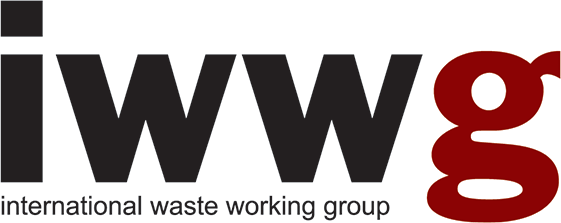INFO FROM THE GLOBAL WORLD
The source of waste and the end of waste: COVID-19, climate, and the failure of individual action
- Available online in Detritus - Volume 10 - June 2020
- Pages V-VII
Released under CC BY-NC-ND
Copyright: © 2020 CISA Publisher
After COVID 19, time to have a specific column on developing countries is over: the pandemic highlighted - if ever neces-sary - the need to think as a whole. The new corner called “Info from the global world” wants to collect thoughts and impressions from different parts of the world, with the aim of promoting cultural intersections on issues affecting circular waste management, environmental protection and human health. We will discuss how gender inequality and environmental racism can also be combated through truly sustainable waste management and how the circular economy and Sustainable Developing Goals can con-tribute to worsening already precarious situations. The first issue concerns COVID19, supplementary article to the editorial of this first issue of Detritus after the start of the global health emergency.
References
Bernstad, Anna. (2014). Household food waste separation behavior and the importance of convenience. Waste Management, 34(7), 1317-1323.
DOI 10.1016/j.wasman.2014.03.013
Brief, Carbon. (2020). Analysis: Coronavirus set to cause largest ever annual fall in CO2 emissions. In S. Evans (Ed.), Global Emissions: Carbon Brief
Chen, Kai, Wang, Meng, Huang, Conghong, Kinney, Patrick L., & Paul, Anastas T. (2020). Air Pollution Reduction and Mortality Benefit during the COVID-19 Outbreak in China. medRxiv, 2020.2003.2023.20039842.
DOI 10.1101/2020.03.23.20039842
Cohen, Steven. (2017). Understanding the Sustainable Lifestyle. The European Financial Review, 7-9
Doeland, L. (2019). LETTING REMAINDERS GET STUCK IN OUR THROATS. Detritus, 7, 1-3
Hawkins, G. (2019). Disposability. Discard Studies
Kalina, M. (2020). TREATING THE SYMPTOM? A MARXIST REFLECTION ON ‘ZERO WASTE’ AND SARDINIA 2019 SYMPOSIUM. Detritus, 9, 4-10
Kalina, Marc, & Tilley, Elizabeth. (2020). “This is our next problem”: Cleaning up from the COVID-19 response. Waste management, 108, 202-205.
DOI 10.1016/j.wasman.2020.05.006
Khattab, Mianda, & El Haggar, Salah. (2016). Beyond Zero Waste Concept: A Revolution for Sustainable Community. Int. J. of Sustainable Water & Environmental Systems, 8(1), 13-19
Korst, A. (2012). The Zero-Waste Lifestyle: Live Well by Throwing Away Less. Berkley, CA: Ten Speed Press
Loibron, M. (2014). Modern Waste as an Economic Strategy. Retrieved from https://discardstudies.com/2014/07/09/modern-waste-is-an-economic-strategy/
Moss, Steve. (2018). Striving for a low-waste lifestyle. MRS Bulletin, 43(7), 559-560.
DOI 10.1557/mrs.2018.174
Rousta, Kamran, Bolton, Kim, & Dahlén, Lisa. (2016). A Procedure to Transform Recycling Behavior for Source Separation of Household Waste. Recycling, 1(1), 147-165
Sanni, Lukman Oladimeji. (2019). Environmental Impact of Sachet Water Consumption in Saki Town, Oyo State, Nigeria
Song, Guobao, Li, Mingjing, Semakula, Henry Musoke, & Zhang, Shushen. (2015). Food consumption and waste and the embedded carbon, water and ecological footprints of households in China. Science of the Total Environment, 529, 191-197
Tallie, T.J. (2020). Facebook Comment, in response to Geoff Williams. Facebook. https://web.facebook.com/ttallie/posts/10107582158645
124?comment_id=10107582568239294¬if_id=1589999150128095¬if_t=feedback_reaction_generic
UNEP. (2019). Emissions Gap Report 2019. Nairobi, Kenya: United Nations Environment Programme
Valentine, M. @mckinleaf. (2020). Individuals are currently doing about as much as you could ask for in terms of reducing consumption: no air travel, much fewer car trips, less take-away and home deliveryfood, etc. Carbon emissions have dipped but not by much. Individual aciton is not the answer. Twitter. https://twitter.com/mckinleaf/status/1255413545447108609
Van Rensburg, Melissa L., Nkomo, S’phumelele L., & Dube, Timothy. (2020). The ‘plastic waste era’; social perceptions towards single-use plastic consumption and impacts on the marine environment in Durban, South Africa. Applied Geography, 114, 102132.
DOI 10.1016/j.apgeog.2019.102132
Willis, Kathryn, Hardesty, Britta Denise, Vince, Joanna, & Wilcox, Chris. (2019). The success of water refill stations reducing single-use plastic bottle litter. Sustainability, 11(19), 5232
Wünsch, Christoph, & Simon, Franz-Georg. (2018). The Reduction of Greenhouse Gas Emissions Through the Source-Separated Collection of Household Waste in Germany. In R. Maletz, C. Dornack & L. Ziyang (Eds.), Source Separation and Recycling: Implementation and Benefits for a Circular Economy (pp. 269-287). Cham: Springer International Publishing
Zambrano-Monserrate, Manuel A, & Ruano, Maria Alejandra. (2020). Do you need a bag? Analyzing the consumption behavior of plastic bags of households in Ecuador. Resources, Conservation and Recycling, 152, 104489
Zoroufchi Benis, Kh, Safaiyan, A., Farajzadeh, D., Khalili Nadji, F., Shakerkhatibi, M., Harati, H., Sarbazan, M. H. (2019). Municipal solid waste characterization and household waste behaviors in a megacity in the northwest of Iran. International Journal of Environmental Science and Technology, 16(8), 4863-4872.
DOI 10.1007/s13762-018-1902-9



